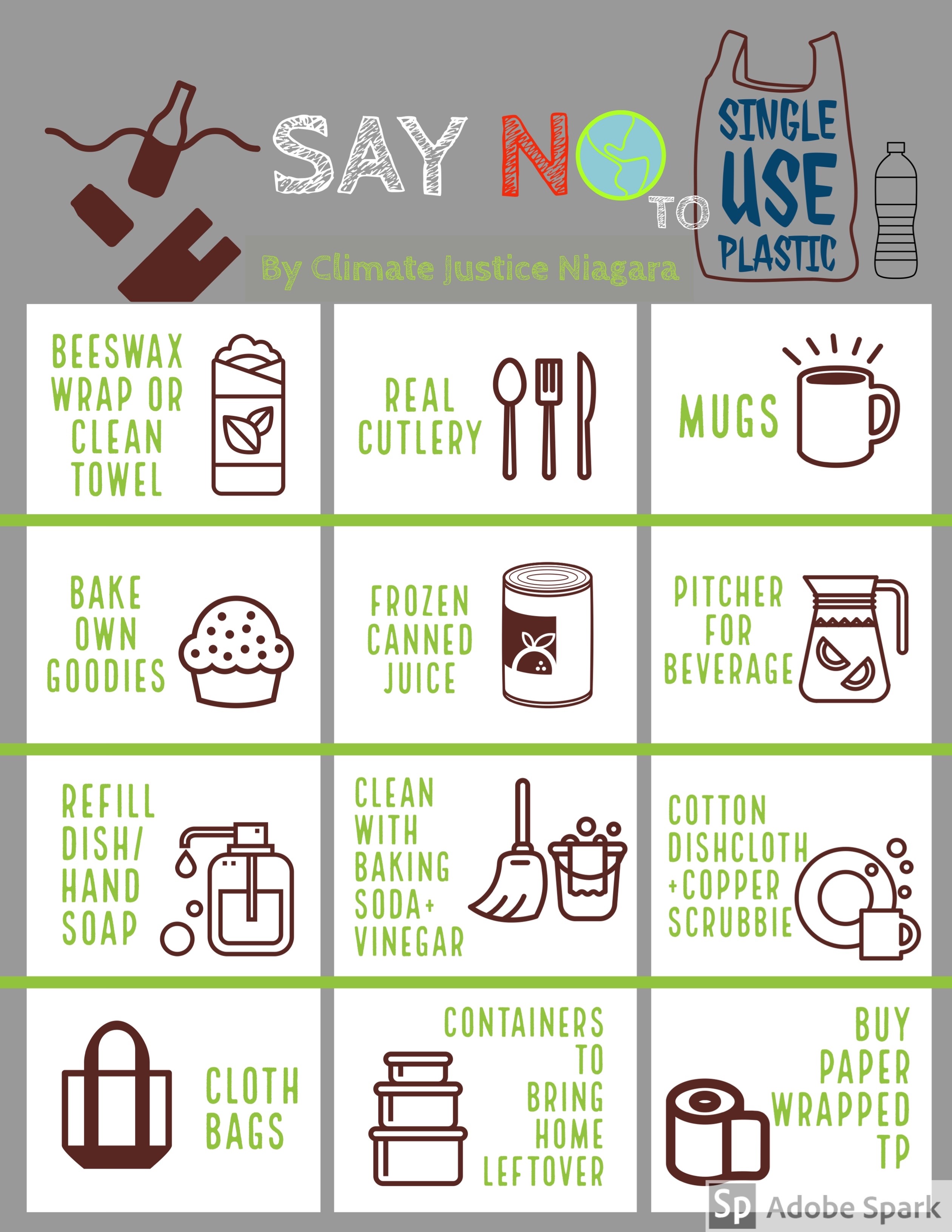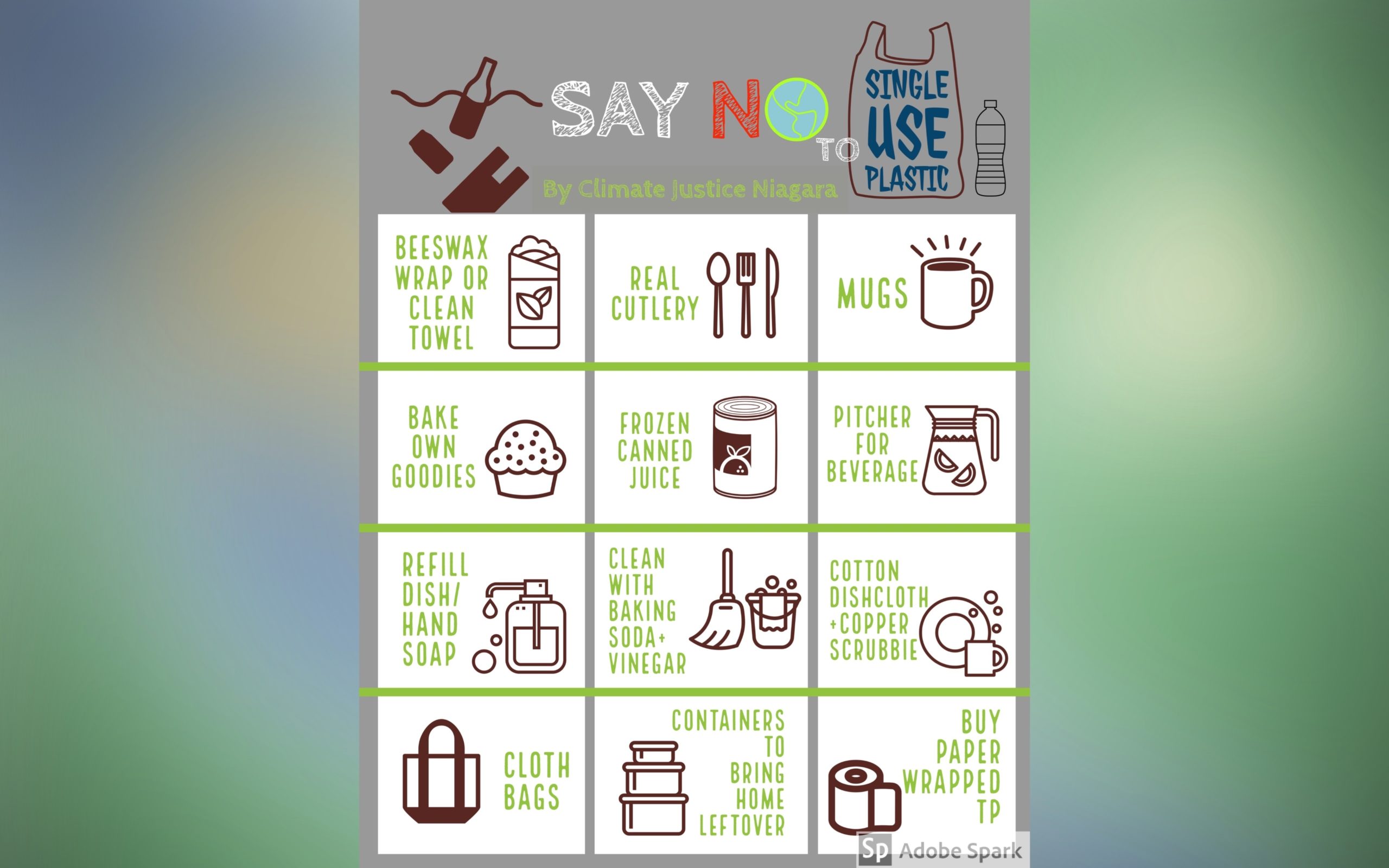As we begin to see flickers of light at the end of the COVID-19 tunnel, our society is still very much in the dark of another scourge, the plastic pollution pandemic.
However, in the Diocese of Niagara, we see some light being shed on this too, as almost 40 parishes have embarked on the mission to break free from plastics after passing vestry motions to ban single-use plastics by 2022.
The key to ending the plastic pandemic seems simple – stop mindlessly making and using plastics. I would suggest we all need to start with a ‘climate mindset’, committed to finding creative solutions to serve, without causing harm to God’s creation.
In the context of ditching single-use plastics, it means we must break free from the belief that it is necessary to use plastic, even during the pandemic. According to Environmental Defense, a panel of global experts have concluded single-use plastic is not inherently safer than properly cleaned reusables and it causes public health concerns once being discarded.
We must also break free from the lure of convenience of plastic use. The relentless adoption of plastics is a rather recent industry-made phenomenon. Most of us have lived in days of using much less or very little plastic. It is a challenge but absolutely doable. It takes exploration of creative solutions and, unfortunately, it does take paying a little extra.
Let’s take those parish events or outreach programs involving food, as an example, and look at the single-use plastics commonly utilized.
Styrofoam trays, clear plastic bags, plastic containers
Parishes can source paper trays, bags and containers online. More local eateries have switched to paper containers so they could make suggestions of such suppliers. One thing we can learn from upmarket bakeries – they never pack their goodies in plastic bags. No one likes to eat from a plastic bag or sip hot soup from Styrofoam containers.
Plastic cutlery
According to the federal government, plastic cutlery will be banned by the end of this year. It is expected we will see more non-plastic alternatives available in the market for outreach ministry. However, in a church setting, properly cleaned reusable cutlery is good enough.
Plastic wrap
If the purpose is to cover food, a clean hand towel or plate will do the job. If the purpose is more to display food, such as in a bake sale, we can instead display a picture of the items or write it on a chalkboard. Most people can immediately visualise a mouth-watering picture when they see the words “the world’s best chocolate chip cookies.”
Plastic tablecloths
A clean tablecloth is as safe as a flimsy plastic sheet and is way more aesthetically pleasing. It is especially helpful in creating a cozy feeling in any fundraising event.

We cannot dismiss the fact that some of the plastic alternatives would cost slightly more. Adjust your prices to reflect the cost of the containers, and post a sign explaining that the containers are better for the environment. We can seize the opportunity to show our churches’ commitment to care for earth. Even better, we can include eco-friendly items in fundraising events, such as home-made laundry soap, cloth bowl cover, reusable bags from repurpose fabric etc.
To conclude, I would like to share these rules of thumb, questions to ask as you plan your ministry event or outreach, or purchase for your family, to be sure you have a ‘climate mindset.’
Is it absolutely necessary to be packaged?
What will I do with the package when it comes to the end of life?
Are we caring for people and the Earth at the same time?
Are we upholding climate justice to God’s people, now and the future?
As a community of Christ’s followers, it is our sacred call to be on the forefront to safeguard God’s creation. This call is truer and more urgent than ever. As we learn from this pandemic, a healthy planet is the baseline of humanity. We cannot take care of people if we are not taking of the earth.
Irene is a member of the diocesan Climate Justice Niagara committee. Learn more at: https://niagaraanglican.ca/climatejustice

Disability Theology and it’s Promise for our Church